In recent years, Ethiopia has witnessed an exponential surge in the number of self-proclaimed motivational speakers and self-help gurus. With the advent of social media, these charismatic figures have gained popularity and amassed a substantial following. While their presence offers both positive and negative aspects, it is important to consider their long-term and short-term potential impact on our particular context.
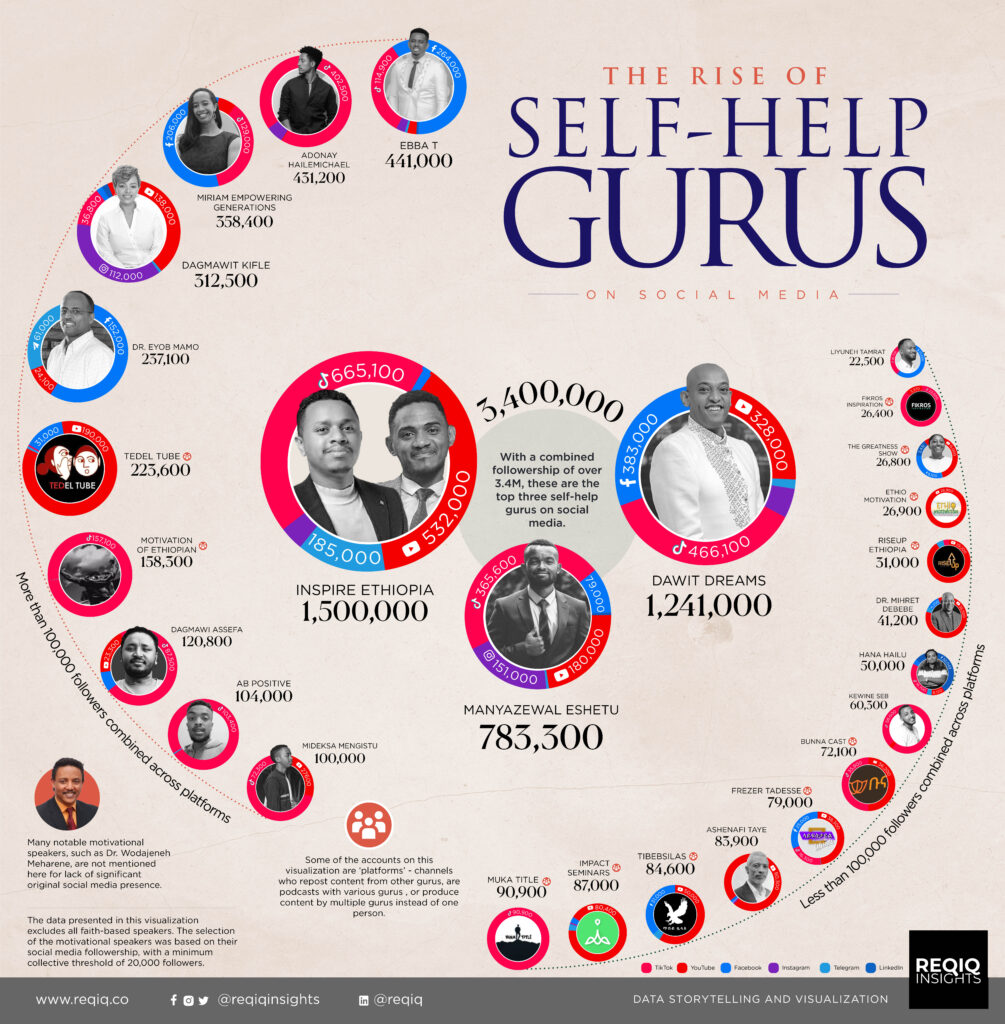
The Rise of Motivational Speakers
Thanks to the power of the internet and platforms like YouTube, TikTok, and Facebook, motivational speakers and self-help gurus have found an extensive audience in Ethiopia. They can easily reach out to millions, inspiring hope and motivation among the masses. Besides the exponential rise in social media usage in Ethiopia, this trend has been fueled by several factors.
Ethiopia is a nation with a rich cultural heritage and a history of resilience. Many citizens clamor for personal growth and betterment. Radical improvement of one’s financial and social status seems to be the only way to secure a seat at the table of Ethiopia’s future. Furthermore, Ethiopia faces its fair share of challenges, including poverty, unemployment, and political instability. In such times, people seek solace in motivational content that encourages them to persevere and overcome obstacles. The rise of motivational speakers taps into this desire for progress and distraction, further fueling their fame and popularity.
What’s the Harm?
Amid the wave of optimism, there are genuine concerns about the rise of self-proclaimed motivational speakers and self-help gurus.
Unlike certified psychologists or professionals, many of these speakers lack formal training in psychology or counseling, not that anyone was rushing to corroborate the qualification of such influencers. This lack of basic due diligence has cost us in the past. The popularity of influencers whose qualifications remain a mystery can lead to harmful advice being disseminated, impacting vulnerable individuals seeking genuine help.
Some self-proclaimed gurus use their influence to exploit vulnerable individuals financially. They may promote expensive courses, workshops, or products with exaggerated promises of life-changing results. When you consider the country’s economic state, this exploitation is a flagrant attack on the survival of its people.
Let’s be frank, life’s challenges are often complex, and solutions may not be as straightforward as presented by these gurus. Oversimplification can lead to disappointment and disillusionment among those who expect instant transformations. Sitting on decades of trauma caused by poverty, unemployment, civil war, instability, and poor emotional hygiene, Ethiopians are hardly in a place where they can entertain more disappointment.
The Silver Lining
On the flip side, it is crucial to recognize the positive contributions of self-proclaimed motivational speakers and self-help gurus. Many Ethiopians find inspiration in the stories of these speakers who have overcome adversity. This empowerment can encourage people to take charge of their lives and pursue their dreams. Weighed down by the political and economic crises, Ethiopians can greatly benefit from a cheerleader! Not to mention, in a world often inundated with negative news, motivational speakers provide a much-needed dose of positivity and encouragement.
A terrific benefit that should not be discounted is the example of confidence, public speaking, and communication that these gurus are setting for the people, especially the youth. These qualities can empower young individuals to express themselves effectively, pursue their goals with determination, and become influential leaders in their communities.
Where is the Balance?
The rise of self-proclaimed motivational speakers and self-help gurus in Ethiopia is a phenomenon that cannot be ignored. As their numbers continue to grow, it is essential for consumers to exercise discernment and critical thinking.
When seeking motivational content in Ethiopia, verify credibility by choosing speakers with tangible expertise or relatable life experiences. Question extreme promises of overnight transformations and miracle cures, as sustainable change takes time and effort. Remember that motivational content can complement therapy but not replace it; when possible, consult licensed professionals for personalized guidance when facing serious challenges. While self-help gurus can empower and create community, their rise also carries risks of exploitation and misinformation. Approach this trend with mindfulness and discernment to find genuine inspiration for personal growth and development.

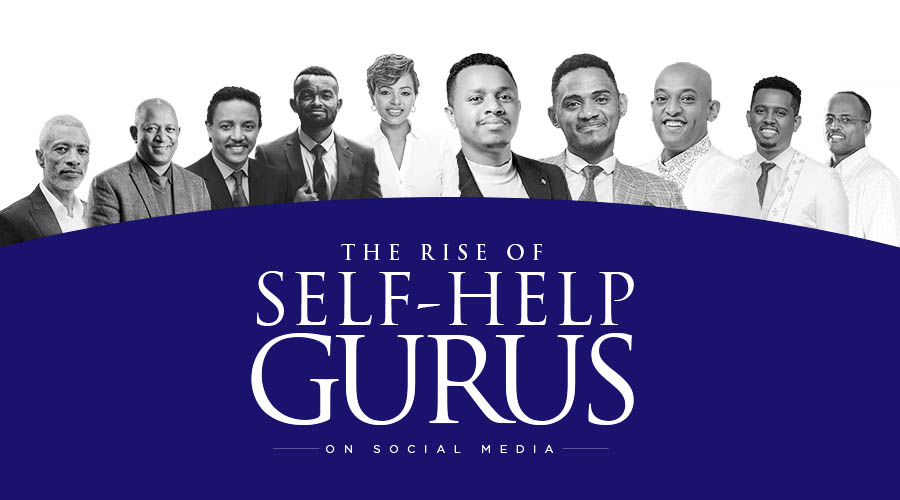


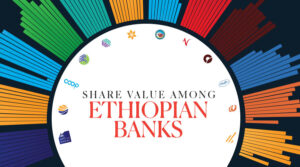
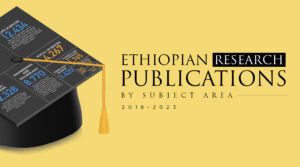


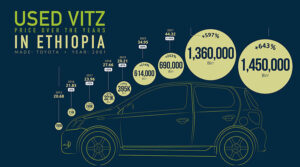
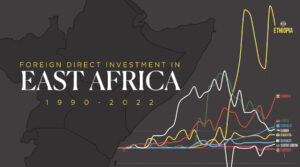

One Response
very straightforward and impressive vis with a well-defined explanation, It seems very hard to collect precise data related to the topic. but I would love to see how the youths of Ethiopia have changed by the new storm of ideology spreading across the country. to what extent is it difficult to collect a survey about this topic?
thank you!